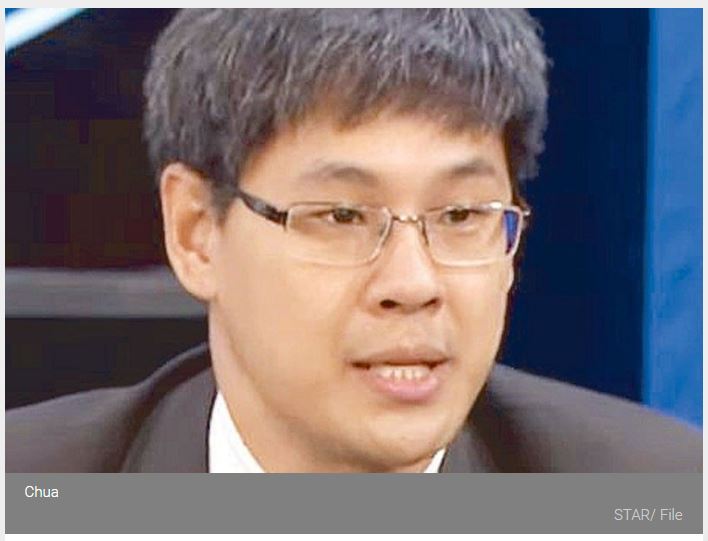Philippines risks double-dip recession
MANILA, Philippines — The renewed tighter restrictions in the capital due to surging COVID-19 cases may put the Philippine economy at risk of a double-dip recession, a global think tank said, but the government maintained that the economy remains on track for recovery and growth.
In its latest economic monitor, UK-based Pantheon Macroeconomics said the Philippines is facing the real risk of a double-dip recession, a situation wherein a recession is followed by a short-lived recovery and then another recession.
This usually involves prolonged unemployment and low gross domestic product (GDP), among other factors.
“The second wave of COVID-19 in the Philippines has forced a U-turn in the government’s reopening plans, threatening the durability of the recovery heading into the second quarter,” Pantheon Macroeconomics senior Asia economist Miguel Chanco said.
Acting Socioeconomic Planning Secretary Karl Chua, however, maintained there is no risk of a double-dip recession even amid the situation.
“The economy is functional and quarantines are localized. We are on track for growth,” Chua told The STAR.
“These are well balanced to address the rising cases of COVID-19 while ensuring the rest of the economy is able to function,” he said.
Other economists who spoke with The STAR did not dismiss the possibility of a double-dip recession, but maintained risks would depend on how things would pan out after the two-week bubble.
Nicholas Mapa, senior economist at ING Bank, said the Philippines is now neck-deep in recession, posting four straight quarters of contracting GDP, with the streak now all but likely to hit five.
Mapa noted that the growth expected in the second quarter is mainly because of the steep drop from last year and the two-week bubble would likely push back pre-pandemic GDP level to the last quarter of 2022.
“Once again, we see how the health crisis and the economic struggles of the Philippines are intertwined with the recovery likely never happening until COVID-19 is completely and successfully quelled,” Mapa said.
“The longer the economy remains in recession, the more vulnerable it will be to the scarring effects from the pandemic, with business closures mounting and unemployment at elevated levels,” he said.
Union Bank of the Philippines chief economist Ruben Carlo Asuncion said it is possible that if the bubble would fail to curb virus infection and the vaccination rollout does not happen as planned by the end of 2021, more restrictions would be applied.
Such scenarios will be highly negative to investment sentiment in the country and may result in almost near negative GDP growth, he said.
“But as of the moment, I do not see any double-dip recession possibility yet. We will have to see in the next two weeks how things pan out,” Asuncion said.
“If indeed we do regress to a possible double-dip recession, then there should be enough government fiscal support, aside from what we already have, that should be rolled out to prevent the economy from further deterioration,” he said.
Foundation for Economic Freedom (FEF) president Calixto Chikiamco also agreed with the possibility of a double-dip recession, especially if the restrictions are not lifted as scheduled amid uncertainties on whether the surge can really be controlled within two weeks.
“However, on a year-to-year basis, because of the steep economic contraction in the second quarter last year, the economy will still manage to post a positive growth rate, albeit not as high as expected,” Chikiamco said.
“Due to base effects, the economy will show positive growth. What the increased restrictions mean is that the economic rebound will be slow and prolonged,” he said.
Rizal Commercial Banking Corp. chief economist Michael Ricafort, for his part, emphasized that the risk of double-dip recession would still be low if there would be no further lockdowns.
“Only hard lockdowns, which are less likely for now as a matter of policy, would lead to the risk of a double-dip recession. Very low GDP base, especially starting the second quarter would also make this risk less likely for now,” Ricafort said.
Further, Chanco said most of the economic damage which would be caused by the second wave and the consequent tightening of rules would fall in the second quarter, even though the stricter two-week period will only last until April 4.
“The comparatively modest new curbs and their short time frame probably reflect a hesitancy to go harder, now that vaccines are being rolled out. We reckon, however, that the rules will be both tightened and lengthened, eating much more into the second quarter,” Chanco said.
“A creep towards de facto MECQ in the worst-hit areas looks inevitable, judging by the intensity of the current outbreak,” he said.
Source: https://www.philstar.com/business/2021/03/24/2086464/philippines-risks-double-dip-recession


 Thailand
Thailand




